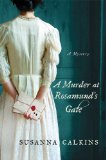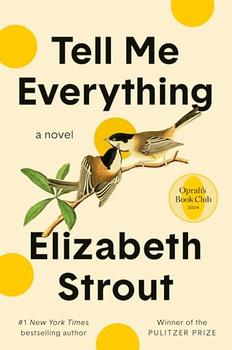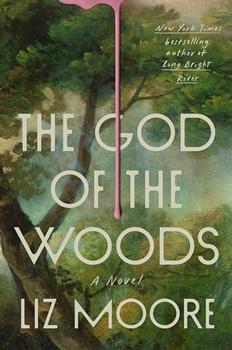Write your own review!
Jan
A Murder that kept me Guessing
I couldn't put down this book from the minute I picked it up. The period was displayed in a fascinating manner, the characters were true to life and well written and the mystery itself took me in and kept me reading. It was a book that I was sorry to see come to an end. I would highly recommend this book to lovers of historical fiction and of mystery. The strong character of Lucy will remain in my mind as a wise brave heroine.
Janet P. (Spokane, WA)
A great murder mystery
I was glued to this book from the first page. Period mysteries are my favorite, but so often the murderer is either obvious or a ridiculous character added at the last second to fulfill the author's need for a culprit. This was neither of those. The characters were well developed, the setting, believably 17th century London, and the plot was intriguingly believable. I'm not sure there were many serving women like Lucy in London at that time, but I'd love to believe that there were.
Roni S. (Pittsburgh, PA)
A Murder at Rosamund's Gate
In her debut novel, Susanna Calkins does a wonderful job putting the reader in seventeenth century London, England. The author puts you there-experiencing the sights, smells, tastes and culture of the period. The main voice, Lucy is a chambermaid in a magistrate's house. Lucy's close friend and coworker is murdered. Lucy must search for the truth when her brother is wrongly accused of the murder. The author writes beautifully and I never lost interest. In this book the door is open for a sequel.
Norman G. (Washougal, WA)
Satisfying
At no time did I find myself let down by the plot or the characters as the novel moved along at a fast pace. The historical part of the novel gave an accurate picture into the life and views of the time and the people mainly voiced the prevailing sentiments of the era. The author gave enough hints as to who was committing the murders but kept it in doubt with several red herrings. For a first novel, though, I felt there were two weaknesses that kept it from being really excellent. The main character, Lucy, at times seemed to be exceptionally naive for someone so intelligent who understood the limitations of the times. She acted out of character at intervals. Also, while the ending tied up the story nicely, the last two pages seemed to be written only so the reader knew there would be other novels coming. It gave an artificial aspect that left me wondering if Susanna Calkins could not have invested more time in making it less obvious about her intentions. Lucy and Adam were so strongly romantic that the rational speeches by both felt out of place in the final pages.
Lesley F. (San Diego, CA)
A Murder at Rosamund's Gate: History and Mystery
I am in novel heaven... seventeenth century England and a chambermaid with the good sense of a Kinsey Milhone and none of the modern conveniences. The historical references are accurate (a novelist has the privilege and the obligation to create details for the sake of the story) and the mystery is great fun - a murder to solve. There is more than a hint of a new series here and as Kinsey reaches the end of her alphabet, I am looking forward to getting involved in Lucy Campion's adventures at the magistrate's house in London. Murder/mysteries are my candy and my summer vacations. This is a winner.
Carol G. (Little Egg Harbor, NJ)
A Murder at Rosamund's Gate
Great read! Loved it from page 1. A beautiful mystery that keeps one guessing. I loved reading about this period in English history as well. I think the ending could have been stronger and may not please all but overall a definite recommendation.
Therese X. (Calera, AL)
Daring New Mystery Sleuth of the 17th Century
Lucy Campion, a young servant in the benevolent Hargrave household, home to a London magistrate, learns that a constable's early morning visit brings news of a brutal murder. A young woman's unclothed body was found in the north fields with a note nearby requesting a romantic rendezvous. This immediately condemns the woman as immoral and Lucy realizes the victim is guilty till proven innocent. Yet who is interested in finding her killer? Soon, a similar murder happens closer to home, and through observation, Lucy suspects the behavior of one of the family, only to be told by him that an arrest has been made. Her brother, Will, a favorite with the ladies, is being held for murder in Newgate prison. Lucy is galvanized into action,facing the dangers of London and the horrors of the prison to prove her brother's innocence and perhaps bring justice to the murdered women. This new seventeenth-century London mystery series introduces Lucy Campion, a naively fearless young woman motivated by truth. Risking not only her place in a good household, but possibly her life, it's her daring that keeps the reader turning the pages, hoping to find that Lucy has prevailed while bringing a culprit to justice
Erin J. (Milwaukie, OR)
I found a new historical mystery author to follow
I received a free advance reading copy (ARC) of this book from Bookbrowse.com, and I'm excited to discover a new mystery author to follow, for this is the first in a new series by debut author Susanna Calkins. I really appreciated the Historical Note at the end of the book, detailing how the author worked to make the novel historically accurate aside from some minor tweaks to things like the duties of magistrates and constables, as well as updates to the spelling and phrasing.
There were enough twists and red herrings in the story to keep me from guessing the killer--always a plus. My one quibble is that Adam, the magistrate's grown son, is a bit uneven in characterization, especially related to his actions and treatment of Lucy. Yes, he is drawn toward her, and yes, he feels honor-bound to leave her alone, but his behavior is a pendulum that swings a little too far for plausibility, in my opinion. Still, I have high hopes that their relationship will be better developed over time in subsequent novels.
For readers' advisors: character and setting doorways, primarily, with story secondary. There was no sex and only very mild historical swearing, to the best of my recollection.




